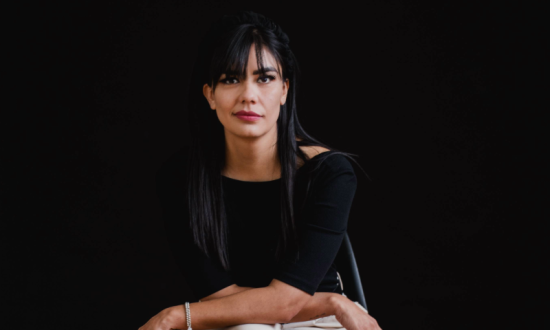Diana Monterrubio is a strategic leader passionate about equality, Tech Sourcing, and the power of writing to drive change. With over a decade of experience in procurement, she thrives on challenging the status quo and promoting equity in the corporate world. Her work is where she focuses on fostering collaboration and building innovative strategies. She is dedicated to creating opportunities for growth and inclusion, always striving to make a positive impact on both the business and the people it serves.
Recently, I found myself in a heartfelt discussion about the challenges many face in professional and personal spaces, particularly feelings of invalidation and misunderstanding. During the conversation, many women intervened, sharing how they have, in one way or another, felt invalidated and diminished. And yes, being a woman was often at the core of it. A woman from the baby boomer generation shared her preference for working with men, citing negative experiences with women. This comment caught me off guard, not just because it dismissed the solidarity many women experience, but because it reflected a deeper issue.
Often, interpersonal conflicts can arise not from inherent traits but from the way society has conditioned us to view each other. The friction this individual experienced might not stem from the people around them but from a broader system that historically has not given seats to women at the table. And when one opens up, well, I understand why all women would fight for that seat. We also want to be seen, and we are told we deserve a seat—that is, of course, until someone has to get up in order for someone else to sit down.
Acknowledging the Contributions of the Past
The struggles of previous generations have paved the way for the opportunities many enjoy today. Without the perseverance of those who came before us, advancements in women’s rights, workplace equality, and social awareness would not exist. These contributions deserve recognition and respect.
At the same time, it’s essential to acknowledge that these efforts often came with scars, reflecting the isolation and competition fostered by a system that pitted individuals against each other. This tale is, in fact, as old as time.
Feminism: Not Anti-Men, But Pro-Equality
One of the greatest misconceptions about feminism is that it seeks to place men and women in opposition. This couldn’t be further from the truth. Feminism is not about creating a world where one group dominates another. I am a proud feminist, and I stand on the shoulders of giants—both women and men—who have believed in me, my potential, and my imperative will to use my voice to break the silence.
Throughout my life, I’ve witnessed the power of allyship from both men and women. During challenging moments, the collaboration and encouragement of allies have reminded me of the importance of unity. Feminism recognizes that we’re stronger when we work together, not apart. Feminism allows women to sit at the table and allows men to not carry the world on their shoulders. Those roles are outdated and useless.
Looking Inward vs. Outward
Going back to that heartfelt conversation, what struck me most about the comment preferring to work with men was how it reflected a common tendency to blame external factors rather than examining internal dynamics. It’s easier to say, “Women have treated me poorly,” than to ask, “Am I contributing to this conflict?” But meaningful progress starts with self-reflection. We all have biases and blind spots, and recognizing them is the first step toward creating a better world.
If we cling to the belief that we hold all the answers, we close ourselves off to growth. Feminism isn’t about imposing a single truth but about creating space for diverse voices and experiences. It’s about listening, learning, and evolving together, and being humble enough to understand that if we know our history, we shall not repeat it.
Collaboration for the Next Generation
The stakes are too high to remain divided. If we want a future where boys and girls grow up with the same opportunities, respect, and dignity, we need to move past the idea that equality is a zero-sum game. Instead of fighting for two seats at the table, let’s work together to expand the table.
This requires intergenerational collaboration. Each generation has unique perspectives and contributions to offer, and working together can challenge outdated narratives while building new ones. By doing so, we can create a world where young girls and boys see equality not as an ideal but as a reality.
A Call to Action
The path forward begins with unity. Let’s challenge the systems that divide us and the biases that hold us back. Let’s commit to self-reflection, empathy, and allyship. Feminism isn’t about winners or losers—it’s about ensuring that everyone has a seat at the table and a voice that matters.
As we move into 2025, my hope is that we take a moment to hear our inner voice and align it with our outer one. Let’s stand for what is right, even if we must stand alone. Together, we are better, stronger, and more powerful than we have ever been.

